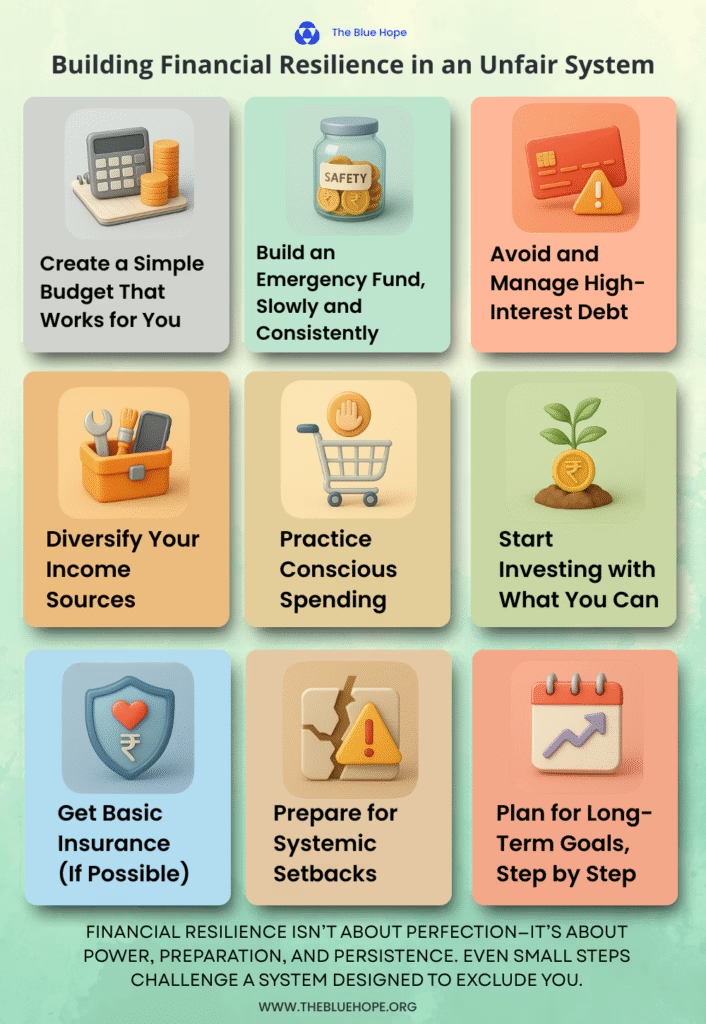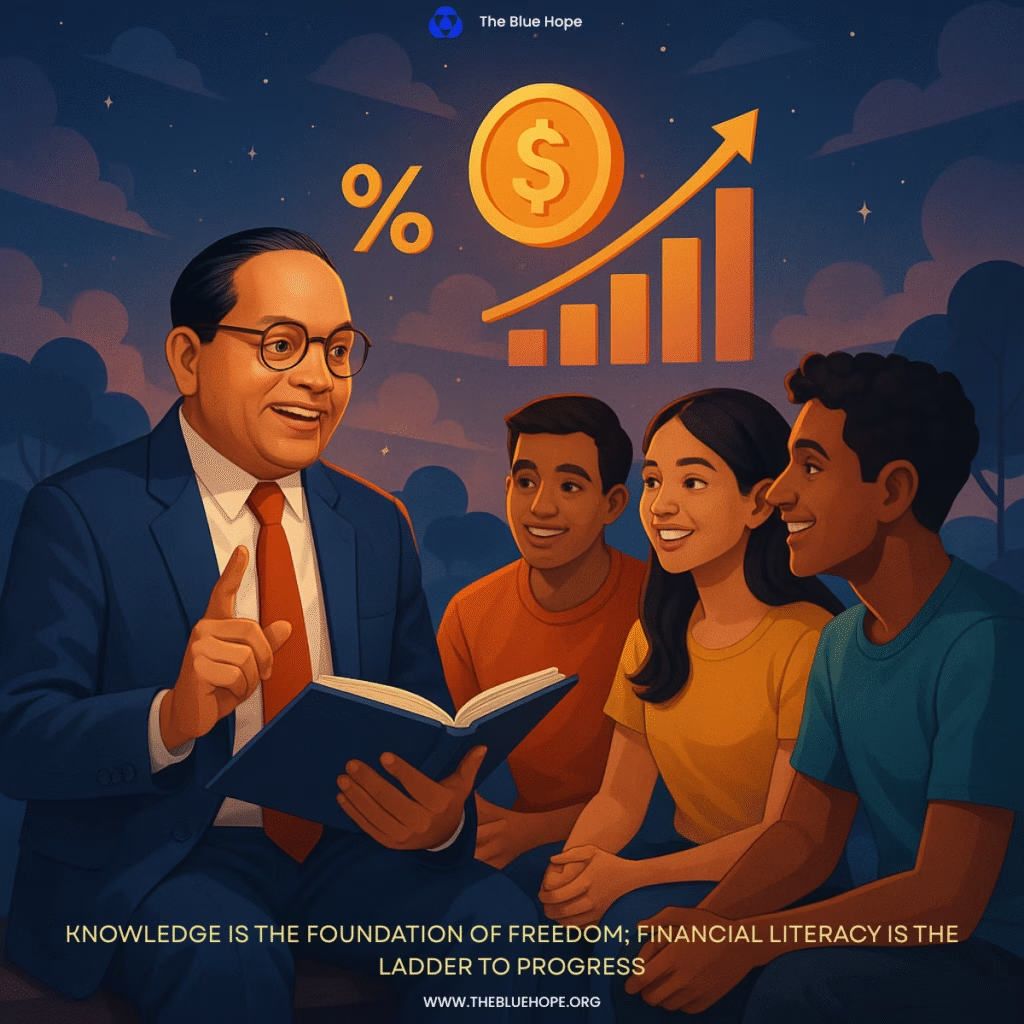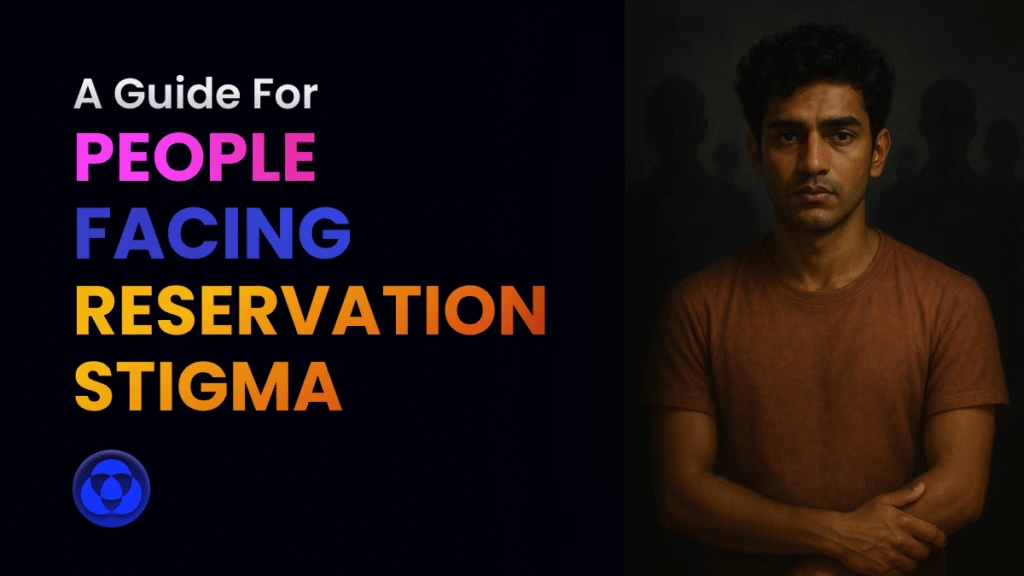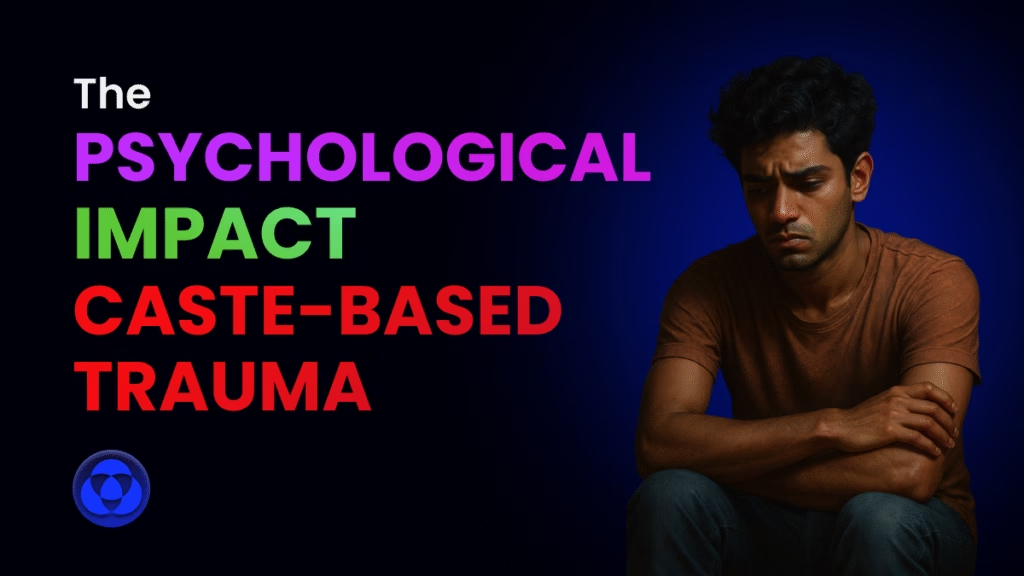Do you constantly worry about money, job security, or making ends meet? If so, you’re not alone. Financial insecurity affects millions of people and is a major source of anxiety, particularly for communities that have historically been excluded from wealth-building opportunities. For many Bahujans, financial stress is compounded by systemic barriers that have limited access to resources, education, and economic advancement for generations.
This article explores how financial insecurity affects mental health, examines the unique challenges faced by marginalized communities, and offers practical strategies for building stability despite these obstacles. Whether you’re struggling to make ends meet or working toward long-term financial security, the following insights and actionable steps can help you navigate your financial journey with greater confidence.
The Hidden Toll of Financial Stress
Financial stress significantly impacts emotional, physical, and mental health. When you’re constantly worried about money, it can lead to anxiety, depression, sleep disturbances, and reduced self-esteem. The pressure to maintain financial stability in a fast-paced world can feel overwhelming, especially when unexpected expenses or income disruptions occur.
How Financial Stress Manifests:
Financial insecurity often creates a cycle of worry that affects multiple aspects of life. When you’re under financial strain, you might experience:
- Increased anxiety and depression: Struggling with finances can put you under immense pressure, leading to persistent worry and feelings of hopelessness.
- Constant overthinking: You may find yourself continuously calculating expenses in your head and worrying about financial outcomes, creating a mental burden that’s difficult to escape.
- Sleep disruptions: Financial worries can keep you awake at night, creating a cycle where lack of sleep further impairs your mental clarity and ability to cope with stress.
- Reduced productivity: When your mind is preoccupied with financial concerns, it becomes difficult to focus on work, education, or other important aspects of life.
- Social isolation: Financial stress often leads people to withdraw from friends and family out of embarrassment or shame, cutting them off from potential support systems when they need them most.

Systemic Barriers and Their Impact
For Bahujans and other marginalized communities, financial insecurity isn’t simply a matter of individual choices or circumstances. Systemic barriers have created persistent obstacles to economic advancement.
Historical Exclusion and Its Legacy:
The lack of generational wealth creates additional pressure to succeed without the safety nets that many others take for granted. Unlike communities that have benefited from intergenerational wealth transfer, many Bahujans start their financial journeys from scratch, without inherited assets, property, or business connections.
Research focusing on India’s social diversity reveals that a small minority, predominantly from upper castes, enjoys economic privilege, while the majority (Bahujan) – comprising Scheduled Castes, Scheduled Tribes, OBCs, and others – has historically been excluded from the nation’s economic progress.
Limited Access to Resources:
While constitutional provisions like reservations have opened important doors for OBC/SC/ST communities, they cannot by themselves resolve the deep economic inequalities created by generations of exclusion.
As many grassroots voices have pointed out, including activists from regions like Jharkhand, “Dalit liberation is impossible through reservations alone.” Even with full implementation in both government and private sectors, quotas would benefit only a limited portion of the population.
This understanding calls for a shift in perspective. True economic justice requires broader and long-term strategies. These must focus not only on representation but also on creating meaningful access to education, employment, land, and entrepreneurial opportunities.
The path to equality lies in structural change and sustained collective efforts.
Practical Strategies to Build Financial Resilience
Despite these challenges, many individuals from marginalized communities have found ways to achieve financial stability through education, skill development, entrepreneurship, and community support. Their experiences offer valuable lessons and inspiration.
1. Create a Simple Budget that Works for You
- Track your income and expenses using a notebook, mobile app, or spreadsheet.
- Prioritize needs (food, housing, medicine) over wants.
- Set spending limits for non-essential categories.
- Review and adjust your budget monthly.
Tip: Don’t aim for perfection. Even 70% budgeting success is a great start.
2. Build an Emergency Fund, Slowly and Consistently
- Start with a goal of ₹500–₹1000 in a separate savings account or envelope.
- Aim for 1–3 months of essential expenses as your long-term goal.
- Add small amounts regularly, like ₹50–₹100 per week.
Why: An emergency fund prevents you from falling into debt during crises.
3. Avoid and Manage High-Interest Debt
- Stay away from payday loans or apps that charge high interest.
- Pay at least the minimum due on credit cards and EMIs to avoid penalties.
- Prioritize paying off high-interest loans first (like credit cards).
Strategy: Use the debt snowball method pay off the smallest debt first to build motivation.
4. Diversify Your Income Sources
- Explore part-time, freelance, or online work (design, tutoring, delivery).
- Learn a new skill that’s in demand (digital marketing, coding, craft-making).
- Sell a product or service locally or online (e.g., food, handmade items).
Resilience comes from not depending on just one income source.
5. Practice “Conscious Spending”
- Ask yourself before every purchase: “Do I really need this now?”
- Look for cheaper or free alternatives (community libraries, shared resources).
- Learn basic repair skills to fix items instead of replacing them.
Tip: Create a “cooling off” period—wait 24–48 hours before buying non-essentials.
6. Start Investing, Even with Small Amounts
- Use SIP (Systematic Investment Plans) to invest as little as ₹100–₹500/month in mutual funds.
- Explore PPF, RD, or low-risk savings schemes for long-term goals.
- Avoid get-rich-quick schemes or random crypto/stock tips.
Start small, but stay consistent. Wealth-building is a long game.
7. Get Basic Insurance (If Possible)
- Health insurance (government or private) helps protect against medical debt.
- Consider term life insurance if you have dependents.
- Government schemes like Ayushman Bharat or PMJJBY can offer coverage at low cost.
Insurance is a shield, not a luxury.
8. Prepare for Systemic Setbacks
- Be aware of social or systemic discrimination that might affect your income/job.
- Know your rights in the workplace and education system.
- Build long-term goals with flexibility: skill adaptability, career shifts, relocation if needed.
Resilience includes recognizing the unfairness of the system—and still navigating it strategically.
9. Plan for Long-Term Goals (Step by Step)
- Write down goals: education, home, children’s future, starting a business.
- Break big goals into small, yearly or monthly milestones.
- Revisit goals yearly to see progress and revise plans.
Planning helps you stay focused, even when life throws challenges.

Community-Based Approaches to Financial Empowerment
Individual efforts are important, but community-based approaches can create more sustainable paths to financial stability.
Collective Economic Models
Cooperative economic models offer alternatives to traditional employment and business structures. These include:
- Self-help groups: Small collectives that pool resources for savings and micro-lending among members.
- Producer cooperatives: Groups that collectively produce goods or services, sharing both costs and profits.
- Community investment funds: Pooled resources that support local entrepreneurship and development.
These models leverage the strength of community while building economic resilience.
Organizational Development and Support
NGOs and community organizations play a crucial role in supporting financial empowerment. However, these organizations themselves need sustainable funding models to provide consistent support.
Recent research on India’s NGOs has revealed that chronic underfunding of indirect costs undermines social impact. Indirect costs are essential for administrative functions, capacity building, and building reserves for financial stress.
For organizations to effectively support communities, funders need to:
- Develop multiyear partnerships rather than short-term, transactional arrangements.
- Close the indirect-cost funding gap to ensure organizations can build internal capacity.
- Invest in organizational development to strengthen service delivery.
- Help build financial reserves to weather unexpected challenges, as demonstrated during the COVID-19 pandemic when 63% of NGOs saw decreased funding precisely when demand for services increased.
Education and Skill Development
Education remains one of the most powerful tools for economic advancement. However, access to quality education and skill development opportunities continues to be uneven.
Prioritizing Higher Education
Kumar, author of “Shaktishali Bano, Satta Prapt Karo,” emphasizes that while reservation has enabled access to education and jobs, it is not sufficient on its own. He identifies higher education as a critical area where the Bahujan community must focus, advocating for:
- Scholarships and mentorship programs
- Targeted interventions to ensure students excel in universities and professional fields
- Celebrating role models to inspire younger generations
Financial Literacy
Understanding how money works is essential for making informed decisions. Financial literacy includes:
- Basic concepts: Understanding interest, inflation, and how financial systems work.
- Practical skills: Budgeting, saving, investing, and debt management.
- Consumer awareness: Recognizing predatory lending practices and making informed choices about financial products.
Many organizations now offer free or low-cost financial literacy programs specifically designed for underserved communities.
Mental Health and Financial Stress
The relationship between financial stress and mental health is bidirectional—financial problems cause psychological distress, and mental health challenges can make it harder to manage finances effectively.
Mindfulness and Stress Reduction
Practical techniques to manage financial anxiety include:
- Mindfulness practices: Regular meditation, deep breathing exercises, or yoga can help manage stress responses.
- Cognitive reframing: Challenging negative thought patterns about money and developing more balanced perspectives.
- Setting boundaries: Learning to say no to financial commitments that increase stress or derail progress toward goals.
- Seeking support: Connecting with others who understand your challenges can provide both emotional support and practical advice.
Consider the case of Rajendera, a 35-year-old IT professional who struggled with severe financial stress due to medical debt and potential home foreclosure. By developing a comprehensive financial plan and incorporating mindfulness techniques to manage anxiety, he was able to significantly reduce his debt and improve his mental health within a year.
Political Engagement and Systemic Change
While individual and community-based strategies are essential, addressing systemic barriers also requires political engagement and advocacy for policy changes.
The concept of “Bahujan Diversity” advocates for fair representation of India’s social diversity in its economic profile. While some formulas for achieving this representation may be flawed, the underlying principle of ensuring that development benefits reach all segments of society remains important.
As one Bahujan Samaj Party leader noted, “Unlike the Congress and the BJP, we don’t have industrialists queuing up outside our doors to contribute money.” This financial reality shapes how marginalized communities must approach political organization and advocacy.
Effective political engagement includes:
- Voting and civic participation: Ensuring your voice is heard in democratic processes.
- Community organizing: Building coalitions around shared economic interests.
- Policy advocacy: Supporting policies that address systemic barriers to economic opportunity.
- Leadership development: Cultivating leaders from within marginalized communities who understand the challenges firsthand.
Addressing Common Concerns
Q1: How can I save when I barely earn enough to survive?
This is perhaps the most common concern, and it’s valid. When income barely covers necessities, saving seems impossible. Start by:
- Looking for expenses that can be reduced, even marginally
- Seeking community resources that can lower your cost of living
- Finding ways to generate even small amounts of additional income
- Saving in micro-amounts (even ₹10 per day adds up to ₹3,650 per year)
Q2: What can I do if I don’t have access to financial education?
Access to financial education is increasingly available through:
- Free online resources and videos
- Community organizations that offer workshops
- Government programs focused on financial literacy
- Mobile apps designed to teach basic financial concepts
Q3: How do I handle financial stress without feeling hopeless?
Financial stress can be overwhelming, but:
- Break challenges into smaller, manageable steps
- Celebrate small victories along your financial journey
- Connect with others facing similar challenges
- Focus on progress rather than perfection
- Remember that your financial situation does not define your worth
Moving Forward: Building Sustainable Financial Futures
Financial insecurity is not a personal failure. It is the result of deep-rooted inequality and generations of exclusion. For many in our Bahujan communities, access to wealth, land, and stable jobs has been deliberately denied. But as Dr. B.R. Ambedkar taught us, we must educate ourselves, organize as a collective, and move forward with courage and clarity.
This journey begins with awareness. It means understanding how the economic system works and how it has historically worked against us. From there, we take deliberate and strategic steps: saving what we can, learning about our rights, investing in useful skills, building support networks, and planning for a future that may seem distant but is always within reach.
Financial empowerment is not only about personal success. It is an act of reclaiming our dignity. It is about ensuring that no child in our community goes to bed hungry, that our elders live with safety and respect, and that the next generation inherits a stronger starting point than we had.
Yes, the system is unjust. But we are not powerless. We are capable, resourceful, and resilient. Every rupee saved, every skill developed, and every conversation about money within our families and communities is a quiet form of resistance and transformation.
Dr. Ambedkar reminded us that “cultivation of mind should be the ultimate aim of human existence.” Let us also cultivate financial wisdom. Not just for ourselves, but as a step toward freedom and collective upliftment.

You deserve financial peace. Not in the distant future, but starting from today. The road may be uneven. Progress may feel slow. But every step forward builds a path for others to follow.
With persistence, knowledge, and unity, we can shape a future where our communities are no longer struggling to survive. We can create a future where we thrive with dignity, security, and hope.










